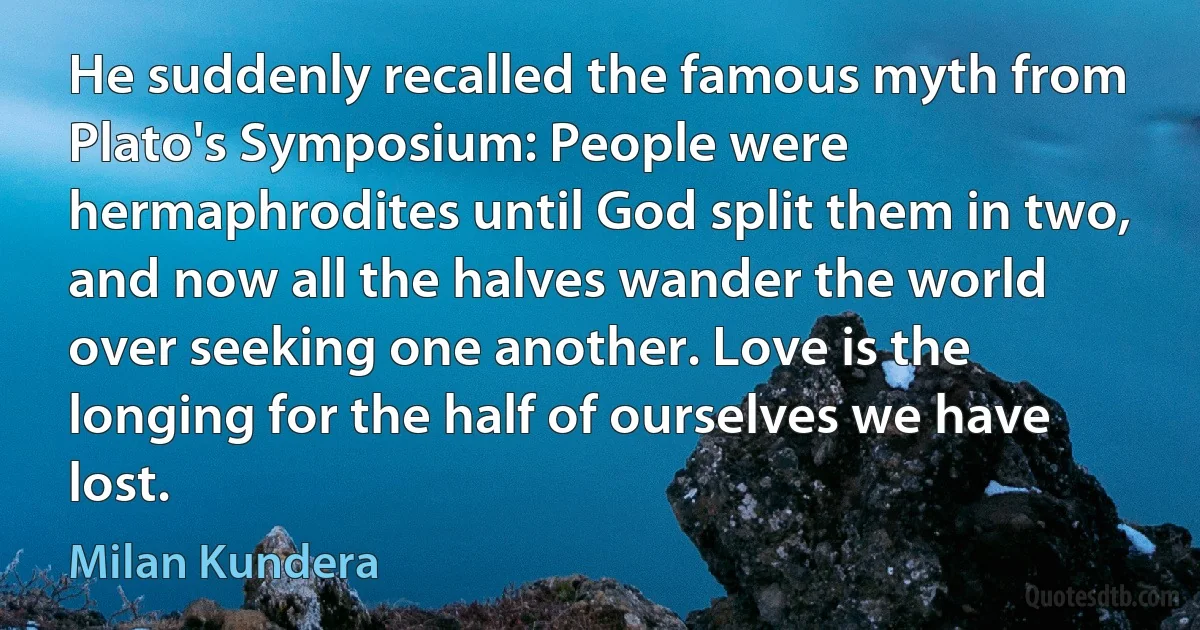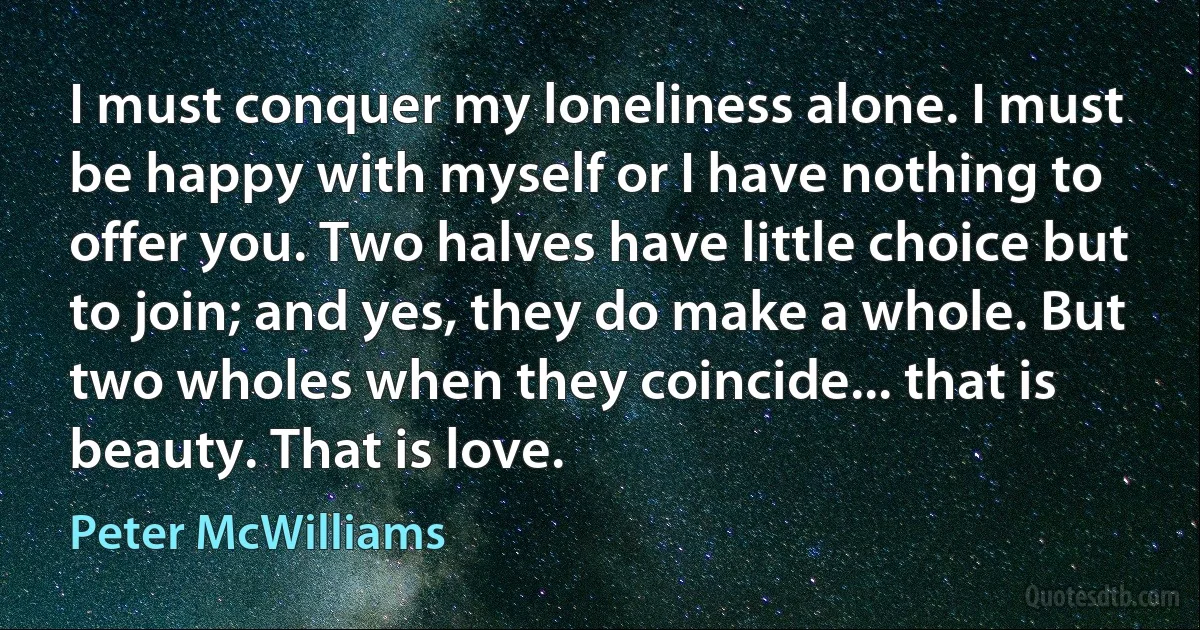Halves Quotes - page 2
Uniting two halves of one soul is inevitable, but timing depends upon your level of spirituality. When the time is ripe, true soul mates find one another even if they are worlds apart- whether physically, on opposite sides of the globe, or spiritually, with contrasting lifestyles and backgrounds. Here's wishing you the courage to keep growing so that you may know – or continue to know – the blessing of oneness.

Yehuda Berg
The more real I got on 'The Bourne Identity,' the more interesting it got. So 'Fair Game' was the chance to go a few more steps in that direction. In fact, I discovered this whole other world that I had ignored in the 'Bourne' franchise, which is the domestic life of a spy, and how you make the two halves of your life coexist.

Doug Liman
In every relationship there are two halves of that relationship. One half is you, and the other half is your son, your daughter, your father, your mother, your friend, your partner. Of those halves, you are only responsible for your half; you are not responsible for the other half.

Miguel Ángel Ruiz
And as the smart ship grew
In stature, grace, and hue,
In shadowy silent distance grew the Iceberg too.Alien they seemed to be;
No mortal eye could see
The intimate welding of their later history,Or sign that they were bent
By paths coincident
On being anon twin halves of one august event,Till the Spinner of the Years
Said "Now!"

Thomas Hardy
Driving to the studio today, I passed a big football field. I had to look twice before I realized that the stands were jammed with people...thousands of them. I looked out on the playing field, and there wasn't a soul. And then I realized that this crowd were war prisoners. I went into the field, and there was a quiet, docile atmosphere about the place...the sort of atmosphere you get in an American football crowd between halves. Germans of every description sat quietly, chatting to their neighbors and doing nothing in particular. Bored British sentries stood around looking like ushers equipped with Tommy guns. It was that quiet.

Bill Downs
The rights and duties of man thus simplified, it seems almost impertinent to attempt to illustrate truths that appear so incontrovertible: yet such deeply rooted prejudices have clouded reason, and such spurious qualities have assumed the name of virtues, that it is necessary to pursue the course of reason as it has been perplexed and involved in error, by various adventitious circumstances, comparing the simple axiom with casual deviations.
Men, in general, seem to employ their reason to justify prejudices, which they have imbibed, they cannot trace how, rather than to root them out. The mind must be strong that resolutely forms its own principles; for a kind of intellectual cowardice prevails which makes many men shrink from the task, or only do it by halves. Yet the imperfect conclusions thus drawn, are frequently very plausible, because they are built on partial experience, on just, though narrow, views.

Mary Wollstonecraft
What is a symbol? Etymologically speaking, the word σύμβολον comes from σνμβάλλω, to throw-with, to make something coincide with something else: a symbol was originally an identification mark made up of two halves of a coin or of a medal. Two halves of the same thing, either one standing for the other, both becoming, however, fully effective only when they matched to make up, again, the original whole. ... in the original concept of symbol, there is the suggestion of a final recomposition. Etymologies, however, do not necessarily tell the truth - or, at least, they tell the truth, in terms of historical, not of structural, semantics. What is frequently appreciated in many so-called symbols is exactly their vagueness, their openness, their fruitful ineffectiveness to express a 'final' meaning, so that with symbols and by symbols one indicates what is always beyond one's reach.

Umberto Eco
We had stood as the sure stars stand, and moved
As the moon moves, loving the world; and seen
Grief collapse as a thing disproved,
Death consume as a thing unclean.
Twain halves of a perfect heart, made fast
Soul to soul while the years fell past;
Had you loved me once, as you have not loved;
Had the chance been with us that has not been.I have put my days and dreams out of mind,
Days that are over, dreams that are done.
Though we seek life through, we shall surely find
There is none of them clear to us now, not one.

Algernon Charles Swinburne



